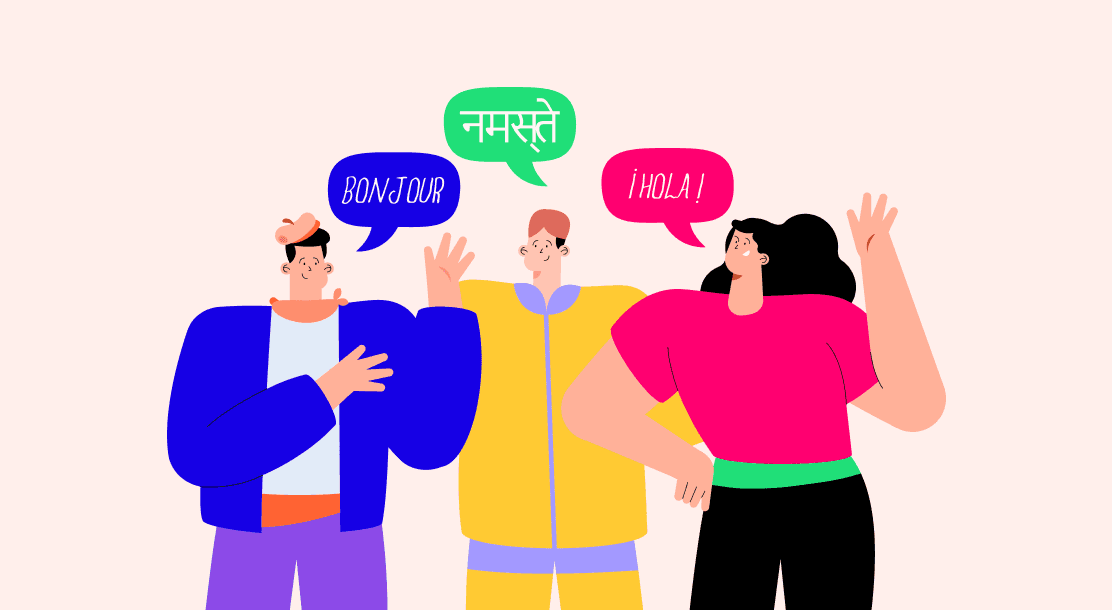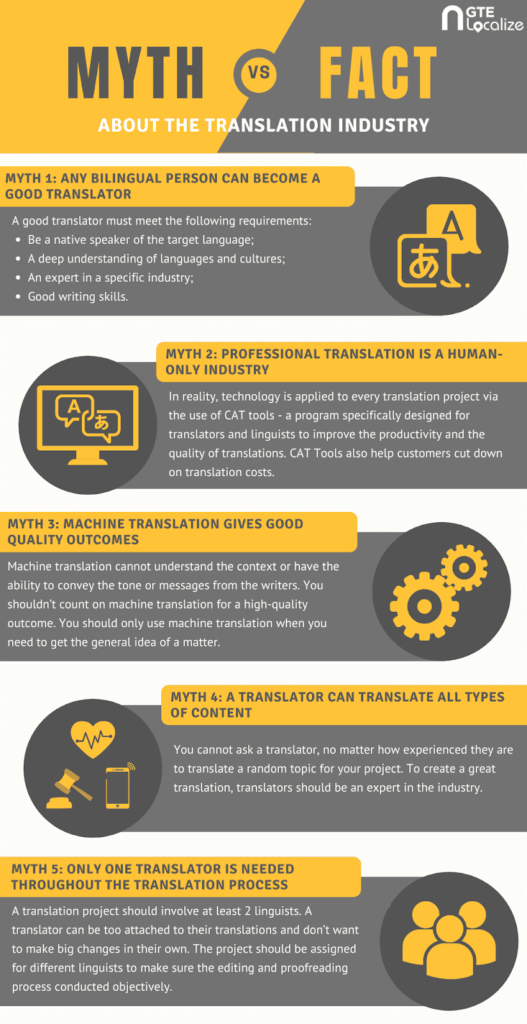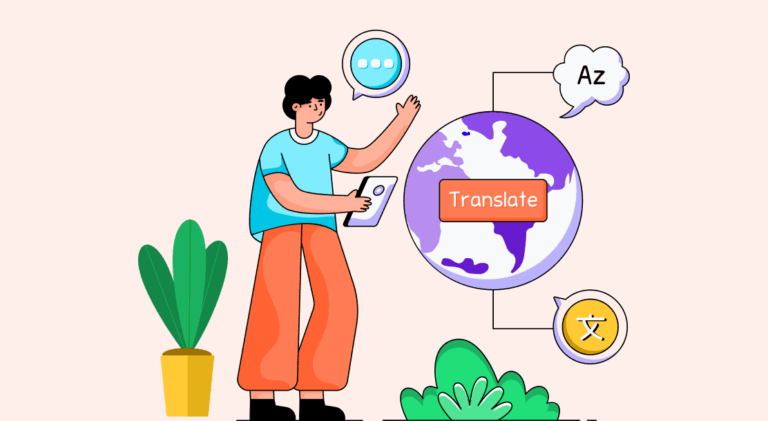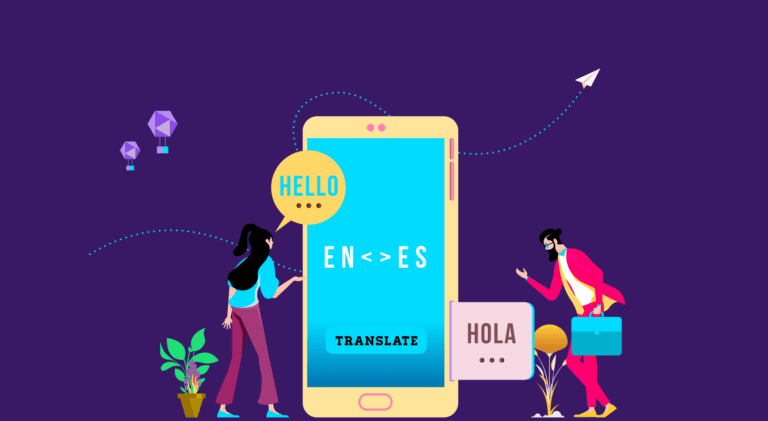
In today’s digital society, both true and false information spreads quickly. So it is a challenge to distinguish fact from myths. The same is true for the translation industry. And no one tries to understand what translation is and what translators do daily. As a result, there are many myths and misconceptions about translation. This blog focuses on some common translation myths.

They are as follows:
1. A bilingual employee can translate for you.
One of the most common translation myths is that a bilingual employee can be a translator. If their job profile is that of a translator, it is a great addition. But if they are not, then asking them to review or translate content is a bad idea. These people do not have a translator’s technical expertise.
Professional translation services need qualifications, experience, knowledge of tools, and more. These translators pick up things with experience. Hiring a non-translator is not a great idea.
2. A bi-directional translator
A language pair in the translation industry translates a group of languages. The representation for this is <>. So, for instance, English<>Hindi is a language pair. So is English> Russian. Here, the arrows represent the translation direction. If the pair uses <>, the translator can work in both languages. If it is a single arrow, the translator can work in one language. In simple terms, English > Hindi means a translator who speaks and understands both languages but works in English and ends in Hindi.

A common assumption is that translators are bidirectional. In the above context. English<>Hindi translator works from English to Hindi. It can also work from Hindi to English. But in the actual world, translators work in their native language. Even if there are multiple language pairs like Italian> English, Hindi> English. The common thread is the native language. So bidirectional translation is more a myth than a fact.
3. Hiring a large translation provider results in good quality
The common myth conception is that hiring large language translation services results in quality. You can choose a small agency if you want translation in one language. A local translator understands the intricacies of the region. Large agencies have hundreds of employees and support large customers, who may not necessarily be well-versed in the same.
4. Hiring entry-level employees works well.
Translation jobs are on the list of work-from-home, entry-level or unskilled jobs. But employing such people is not going to help your case. Translation services need higher education. It requires a degree in translation skills.
It is also a myth that translation is easy. Learning a job and mastering it takes dedication. It is not about quick, on-the-job learning. Unlike other skills, you can’t lie about knowing a language. So stop picking entry-level translators, as it is too long a shot.
5. More translators, more quality
Translators, over time, become familiar with the tone and style of the clients. The common translation myth is that having various translators gets the work done. But if the same group works on a project, there is consistency in the tone and content. So if you have recurring projects, use the same team. By doing so, they know the content and style to follow.
6. Source content has no impact on quality.
Most translation errors occur because the source content is not clear. Translators then use their experience and tools to know the meaning. This is not the best way to go about it, as it impacts the translation quality. Often, many expressions do not have an equivalent in another language. So the only option is to write the literal meaning. When the translator does not get a clarification, it can have a dire effect. Communication is not one-way. If the source is not clear, the translation also won’t be.
7. Any translator can translate any text.
A translator has a set of attributes to do the best work. A translator experienced with text in one domain may not be good at translating texts for a different one. So it is a myth that a translator can work on all texts. For instance, a legal translator needs special skills. A technical writer needs to know about technology. A legal translator cannot work on technical documentation.
8. Translations are uniform
People who are unaware of translation think all translations are the same. They have the misconception that a sentence translated by person A will be translated in the same way by person B. Different people communicate differently. Translators, too, have a word choice, style, and more. They use tools and check for accuracy. The translations are rarely identical. You may not notice it, as the agencies use style guides. But in the end, translations are not always uniform.
9. Machine translation is enough.
While artificial intelligence is the future, there are many advances in this field. But using Google or Bing will not give accurate results. This can help in understanding text but is not accurate. Many human translations today are a rework of machine-generated ones. So it is still a common translation myth in this domain that machine is a replacement for humans.

10. They are a walking encyclopedia.
One common translation myth is that translators know every word in the dictionary. Many translators work in many language pairs. So it means that you speak more than two or three languages. In that case, they will have to know tons of words. But it doesn’t mean they are perfect at it. They can also make mistakes.
Another assumption on similar lines is that translators know language pairs equally. For instance, if you are an English>Spanish translator, you are expected to be fluent in both. Fluency is a loose word and is debatable. Most translators will admit that they know one language better than another. That is the reason native translators complete work faster and better. So a translator having perfect knowledge is fiction.

In the End
While it is easy to have myths and misconceptions about translation and translators, it is essential to move beyond them when you want to work with translators or even agencies. We hope these busted myths will clear your misconceptions.
Latest Blogs
Explore how Google’s 2025 AI search updates triggered ranking chaos. Learn actionable strategies to adapt your SEO for AI Overviews, zero-click searches, and SERP volatility. Stay ahead now.
Learn how to rank on AI search engines like ChatGPT, Perplexity, and Gemini by optimizing your content for authority, structure, and relevance. Stay ahead in AI-driven search with this strategic guide.
Explore the best healthcare SEO services for your medical practice. Improve online visibility and effectively reach more patients in need of your services.
Get your hands on the latest news!
Similar Posts

Translation
5 mins read
All You Need to Know About Language Translation and Terminology Management

Translation
5 mins read
6 Reasons to Translate Content into German

Translation
5 mins read